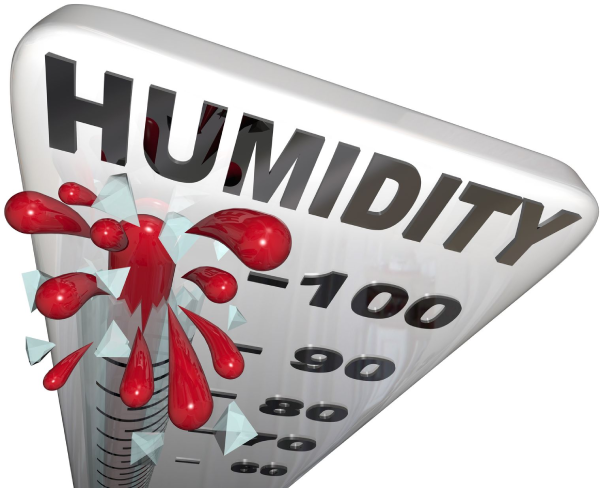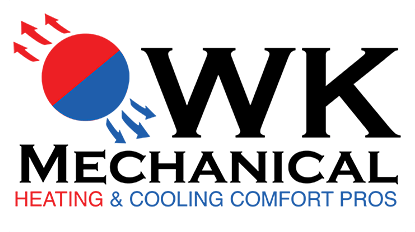
We have all heard jokes about the difference between humid heat and dry heat. While the humidity around Middletown may not be like the tropics, we have our share of elevated moisture. How does this affect your air conditioner and its ability to keep your home comfortable? WK Mechanical, Inc. has put together this guide to help you better understand the relationship between your AC and the humidity it confronts.
Understanding Humidity
If you have ever lived in two different climates that report having 100% humidity, you know there can be a big difference. Why is this, and how do you make sense of what it means for your home and comfort?
Humidity is measured in two different ways: relative and absolute. Absolute humidity is measured in grams of water vapor per cubic meter of air. However, this is not normally how humidity is reported or measured for air quality purposes.
Rather, humidity is more commonly reported as a percentage. This percentage is the relative humidity. As the air temperature increases, it can hold more moisture.
The relative humidity is how much moisture it contains compared to how much it can hold based on the temperature. This is why one location with 60% relative humidity may feel comfortable, but a warmer climate feels muggier.
The Air Quality Component
Humidity directly affects the air quality, which is the number of contaminants circulating in your air. The EPA suggests between 30% and 50% relative humidity is optimal for the best indoor air quality.
If your air is drier than 30% relative humidity, then you experience cracked skin and dried-out wood and leather. These on their own add more particulate matter to your air.
However, this dry air also causes the particles already circulating to dry out. Without the moisture, they stay in the air longer, getting trapped in your air filter and elsewhere in your HVAC system.
On the other hand, a relative humidity greater than 50% is also detrimental to your air quality. This humid environment is perfect for the development of various biological contaminants, including spores.
Humidity, Heat and Your Air Conditioner
Aside from the effect on air quality, how do humidity and heat affect your air conditioner’s functional operation? As already mentioned, when heat increases so does the capacity for humidity. Simple logic follows that the hotter the air is, the more your system must work to cool it.
However, some of the comfort your system provides is dehumidifying the air. As the air moves through the cold evaporator coil, the moisture condenses and falls to the drip pan. Every air conditioning system has a limit to how much air can pass through it, and how much humidity it can remove.
As the temperature increases, so does the absolute moisture, leaving more to pull from the air to reduce the relative humidity. So, not only does the system have to work harder to cool it but also to remove the humidity.
This is part of why the size of your air conditioner is so important. If the system is too large, it will not run long enough to effectively dehumidify your air, leaving it feeling muggy. However, if the system is too small, it cannot move enough air to cool your home.
Options for Controlling Humidity
There are many options for controlling your humidity in your home over both the summer and winter months. The first thing you may think about is getting a portable dehumidifier. These are nice because you can move them where you want them, and they run independently of your HVAC system.
However, they have inherent risks. For example, they must be emptied periodically. Forget to empty it, and you either have water damage or your unit stops running. Plus, you inevitably have one room with lower humidity while the rest of the house is still muggy. This does little to help your HVAC system run efficiently or control the air quality throughout your entire house.
In climates like Middletown, you will probably get enough relief from your central air conditioning if it’s working properly. Professional routine maintenance helps keep your system from removing the optimal amount of humidity.
During these visits, a technician checks your refrigerant level and cleans the evaporator coils. Problems with either of these could lead to your system not dehumidifying the air correctly.
WK Mechanical, Inc. has provided award-winning air conditioning maintenance and repair to people around Middletown for over 10 years. Our experts also provide heating installation, maintenance and repair services along with indoor air quality solutions. Call to schedule your HVAC maintenance with one of our expert technicians today.

